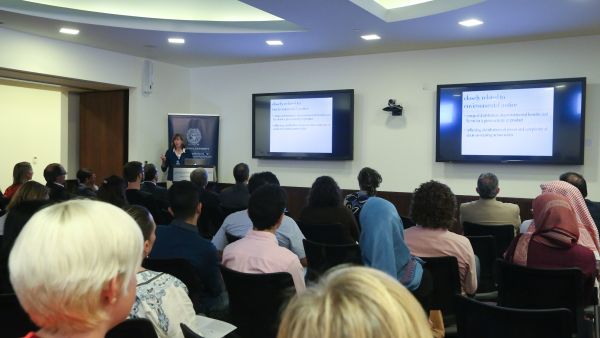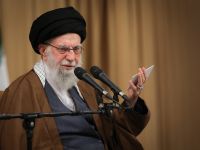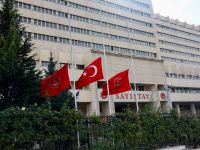Georgetown University lecture highlights human health, human security, and the environment

Holding up a plastic bottle of water as a simple but powerful example of a solution to environmental challenges that results in tremendous ecological impact, political scientist Jeannie Sowers launched into an engaging lecture titled “Environment and Human Insecurity in the Middle East,” at a recent public event held on the campus of Georgetown University in Qatar (GU-Q).
Speaking to an audience of students, faculty, and members of the broader Doha community, the visiting scholar began by saying: “I thought we could think about notions in environmental politics, issues we don't think of as being immediately apparent as causes of human insecurity, which is a lack of well-being and health.” She was explaining how the ubiquitous water bottle leaves an ecological shadow, which she describes as the environmental harm from the production, consumption, and disposal of a resource that is displaced to other people, places, countries, or even future generations.
Dr. Mehran Kamrava, Director of the Center for International and Regional Studies (CIRS) at GU-Q, which hosts the Monthly Dialogue Series lecture, said: “The topic of human security continues to climb in importance as both environmental disasters and social and political instability continue to stress our resources. Dr. Sowers was the perfect guest for the inaugural lecture of the 2015-2016 academic year.”
Sowers, who is an Associate Professor of Political Science at the University of New Hampshire, drew direct and indirect connections between human well-being and environmental challenges facing the Middle East in particular. Drawing on the current “#YouStink” campaign, a popular uprising in Beirut that accuses the Lebanese state for mishandling trash collection, she explained that the issue, which was the result of the closure of a landfill outside the city, is really the result of the common practice of “distancing” a problem. “Industrial and industrializing nations often defer negative ecological costs upon those who are most vulnerable to ecological shifts, including those weakest on the political scale, such as poor communities and other species,” she explained, noting that even developed countries deal with these issues. “The dominant strategy of waste management in the United States remains simply putting it somewhere else,” Sowers said.
“You can apply an ecological shadow to any product or activity, then we can begin to ask how to reduce intensity of that shadow. So how do we reduce ecological shadows? ”asked Sowers in her conclusion. She argued that you have to have cities, states, firms, and consumers all working together to solve environmental problems. “The intensity of this water bottle’s ecological shadow reflects public policy, corporate policy and practices and social and cultural practices - these are things we can change.” Solutions, she argued, must include the provision of urban infrastructures for water and sanitation in particular, to begin dealing with the growing strain on the environment.
Community members interested in the lecture may watch it in the video section of the GU-Q website.
Background Information
Georgetown University in Qatar
Established in 1789 in Washington, DC, Georgetown University is one of the world’s leading academic and research institutions. Georgetown University in Qatar (GU-Q), founded in 2005 in partnership with Qatar Foundation, seeks to build upon the world-class reputation of the university through education, research, and service. Inspired by the university’s mission of promoting intellectual, ethical, and spiritual understanding, GU-Q aims to advance knowledge and provide students and the community with a holistic educational experience that produces global citizens committed to the service of humankind.
Located in Doha’s Education City, GU-Q offers the same internationally recognized Bachelor of Science in Foreign Service degree as Georgetown’s Capitol Campus in Washington, DC. This unique, interdisciplinary program prepares students to tackle the most important and pressing global issues by helping them develop critical thinking, analytic, and communication skills within an international context. GU-Q alumni work in leading local and international organizations across industries ranging from finance to energy, education, and media. The Qatar campus also serves as a residency and delivery location for the Executive Master’s in Emergency and Disaster Management along with the Executive Master’s in Leadership.







